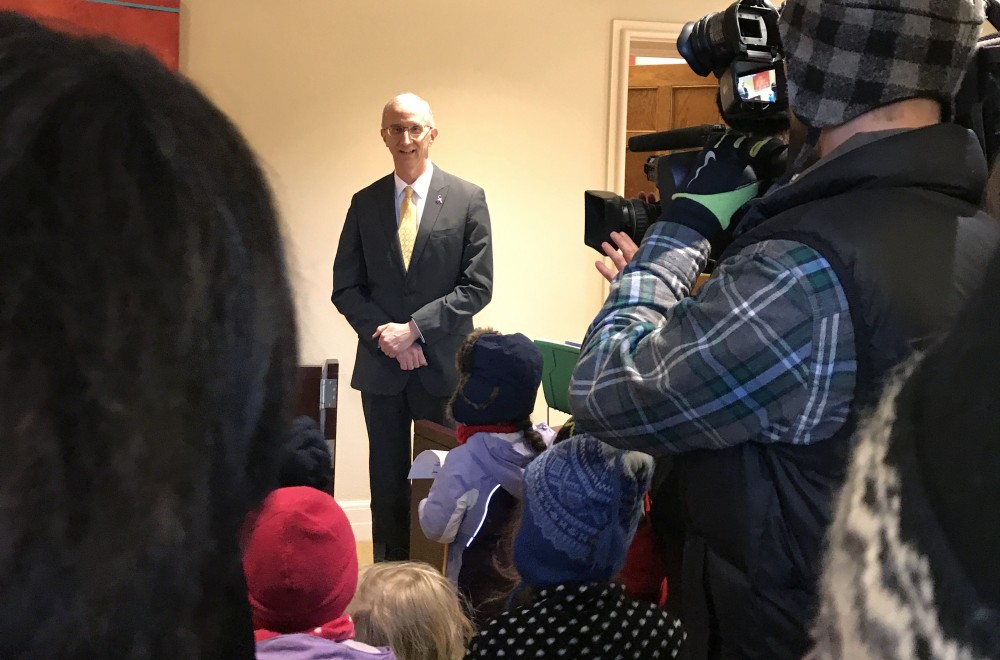More than 25 families with small children piled into Morrill Hall and up the stairs to President Eric Kaler’s office at 4 p.m. Thursday.
Four days prior, parents from the University of Minnesota Child Development Center started a petition in response to the University’s recent decision to close the center in 2019. Parents and children from the CDC personally delivered the petition — which has 3,000 signatures — to the president’s office.
Kathryn Pearson, a political science professor and mother of two kids at the CDC, said she helped organize the protest because of what it means to her and other parents at the University.
“I worry about the signal this sends from the University of Minnesota to faculty with young families and to women faculty in particular,” Pearson said.
She said that child care is already lacking in the state, and the center sets a standard for other child care centers throughout Minnesota.
Although the CDC is limited in space, with only 140 spots, Pearson said it’s served thousands of kids since its formation in 1974.
“I’m neither surprised nor disappointed — in fact, I would have expected this,” said Matt Kramer, vice president of University Relations.
Kramer said the College of Education and Human Development’s decision to close the center is an important decision for the University, which is why the center will not close for another 18 months.
But many parents at CDC disagree, and said 18 months is not enough time to find comparable child care services.
Sara Hurley and her wife, Megan Kocher, who are both staff at the University, found the waitlists for infant and child care at most centers in the area to be longer, ranging anywhere from 12 to 24 months.
Hurley added that there were some centers they were never able to get into even after being accepted into the CDC.
She said availability and affordability are two of the main factors when parents look for child care, and both continue to be a problem in Minnesota.
“That problem is not going to be solved by closing one of the best child development centers in the state,” Hurley said.
Parents received an email about the closure stating that there were alternatives for child care within a five-mile radius of the center, she said, but many of those don’t provide full-day care and aren’t viable options for University parents.
Hurley said the CDC in particular is a diverse group.
“Our message to the administration is to really look at who signed that petition,” Hurley said. “We have multiple associate deans, department chairs, over 70 medical school faculty — that just doesn’t happen.”
While Hurley and Kocher’s daughter will go on to kindergarten next year and it won’t directly affect their family, Hurley said it was important to her to advocate for future families with younger kids who don’t have the time to do it themselves.
“It’s not actually going to affect me, but it does affect the quality of life in the University campus,” Hurley said.







